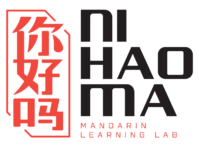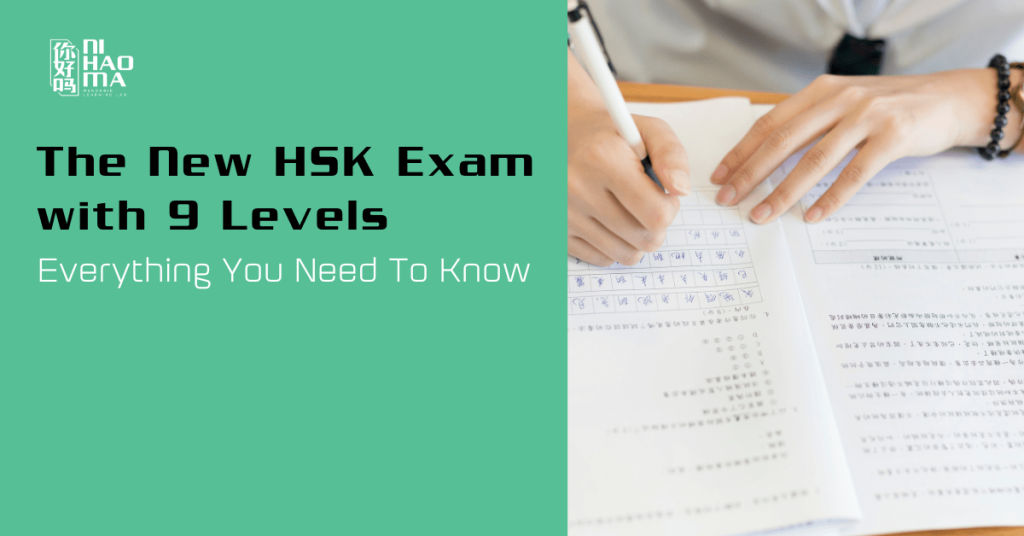As you prepare for the HSK exam, you might encounter the HSKK test, sparking a bit of concern about its necessity. Relax. In this blog, we will look at the core differences between HSK and HSKK, two Chinese proficiency tests emphasizing writing and speaking skills. You’ll gain clarity on the distinct evaluation criteria, formats, and objectives of these assessments. Let’s dive into this adventure to figure out which test matches your language-learning dreams!
- What is the HSK exam for?
- What exactly is HSKK exam?
- What are the differences between the HSK and HSKK exams?
- How to choose the appropriate exam?
- How do HSK and HSKK apply in real life?
- What are the preparation strategies?
- You want to ace the test?

What is the HSK exam for?
The HSK (Hanyu Shuiping Kaoshi) exam stands as an internationally recognized standardized test for non-native speakers of Mandarin Chinese. It serves as an assessment and certification of the proficiency levels in the Chinese language. The test evaluates reading, writing, and listening across six proficiency levels, ranging from HSK 1 (beginner) to HSK 6 (advanced). Passing the HSK exam can be beneficial for academic, professional, or personal reasons, as it’s widely recognized by universities and employers in Chinese-speaking regions and internationally.
What requirements for each level of HSK test?
HSK 1:
- Introduction to pinyin and simple Chinese characters.
- Recognizing and using basic vocabulary and phrases.
- Assessing listening and reading skills.
- Vocabulary: Around 150 words
HSK 2:
- Expanding knowledge of pinyin and more complex characters.
- Utilizing more diverse words and phrases.
- Evaluation of listening and reading abilities.
- Vocabulary: Approximately 300 words.
HSK 3:
- Intermediate proficiency.
- Tests basic communication ability in daily life, study, and work.
- Measures listening, reading, and writing skills.
- Vocabulary: Around 600 words.
HSK 4:
- Intermediate to advanced proficiency.
- Requires a deeper understanding of Chinese culture and society.
- Tests listening, reading, writing, and basic composition skills.
- Vocabulary: About 1,200 words.
HSK 5:
- Upper-intermediate to advanced level.
- Tests comprehensive language skills.
- Requires the ability to read Chinese newspapers and magazines.
- Vocabulary: Approximately 2,500 words.
HSK 6:
- Advanced level.
- Tests advanced language skills and understanding of abstract topics.
- Requires the ability to understand Chinese audio and video programs.
- Vocabulary: Over 5,000 words.
Note: The new HSK will soon include an additional 3 levels, expanding the total to 9 levels.
Does HSK integrate a business curriculum?
Yes, HSK integrates business-related vocabulary and scenarios into its curriculum, particularly in the upper levels such as HSK5 and HSK6. These advanced levels encompass business-oriented language and concepts, preparing individuals for professional communication and engagements within a corporate or business setting.
What is the test structure and the passing grade?
Each level includes sections for listening, reading, and writing, with the higher levels incorporating more complex and nuanced language usage. The evaluation criteria include understanding, comprehension, accuracy, and language application in various contexts.
To facilitate a clearer visualization of the test’s structure, we’ve prepared a table for your convenience.
| Level | Listening | Reading | Writing | Total Duration |
| HSK 1 & 2 | 35 questions Simple phrases and expressions. | 25 questions Basic characters and simple sentence structures. | – | Approximately 35 minutes each. |
| HSK 3 & 4 | 40 questions Longer dialogues and more complex content. | 40 questions Understand paragraphs, instructions, and articles. | – | Around 90 minutes each. |
| HSK 5 & 6 | 45 questions Complex discussions, news reports, lectures. | 45 questions Advanced articles, abstract topics, and literature. | 10 questions Essays or longer written responses. | Roughly 120 minutes each. |
The HSK exam is scored on a scale of 0 to 300. The minimum passing score for each level is as follows:
| Level | Minimum Passing Score |
| HSK 1 | 120 |
| HSK 2 | 180 |
| HSK 3 | 210 |
| HSK 4 | 240 |
| HSK 5 | 280 |
| HSK 6 | 300 |
What level of HSK do I need to work and travel in China?
HSK Level 4 proficiency is often considered adequate for both work and travel purposes in China. This level signifies a practical understanding of everyday Chinese, allowing individuals to navigate daily interactions, basic workplace communication, and travel-related scenarios with relative ease.
What exactly is HSKK exam?
The HSKK (Hanyu Shuiping Kouyu Kaoshi) (link) stands as an essential component in the realm of Chinese language proficiency assessment. Unlike its counterpart, the HSK, which focuses on evaluating writing, reading, and listening skills, the HSKK targets an equally crucial aspect: speaking proficiency. Designed to evaluate an individual’s oral communication abilities in Mandarin Chinese, the HSKK test assesses pronunciation, fluency, vocabulary usage, and conversational skills. The exam is structured across three proficiency levels: beginner, intermediate, and advanced.
How many HSKK levels and what is required for each level?
There’s a prevalent misconception surrounding HSKK, often mistaken as solely the “speaking section” of the HSK test. However, HSK and HSKK are distinct and autonomous assessments. They stand as separate tests, allowing candidates to opt for either one individually, irrespective of the other. Unlike a sequential beginner – intermediate – advanced progression, HSKK doesn’t demand adherence to a specific sequence. You have the flexibility to undertake HSKK independently, without completing any HSK test, selecting the level that aligns with your proficiency without following a preset order. This autonomy permits candidates to choose the test that accurately matches their proficiency level, offering greater flexibility and adaptability in their language proficiency assessment.
Beginner Level:
- The focus is on fundamental speaking skills, such as basic vocabulary usage, pronunciation clarity, and elementary conversational abilities in common daily scenarios.
- Vocabulary: Generally focuses on around 300 to 500 basic words and phrases commonly used in daily conversations.
- Chinese Characters: Basic recognition of approximately 100 to 200 commonly used characters.
Intermediate Level:
- Extensive vocabulary range, requiring a higher level of fluency, coherence, and accuracy in expressing thoughts and ideas across various topics.
- Vocabulary: Expands to approximately 800 to 1,200 words, encompassing a broader range of conversational and contextual vocabulary.
- Chinese Characters: Involves recognition of around 300 to 500 additional characters, including more complex and less frequently used ones.
Advanced Level:
- Ability to engage in complex discussions, comprehend abstract concepts, and articulate nuanced opinions fluently and coherently.
- Vocabulary: Extensive comprehension of roughly 1,500 to 2,000 words, covering a wide array of topics and themes, including abstract concepts.
- Chinese Characters: Mastery of an additional 500 to 800 characters, delving into more intricate and specialized characters.
How many sections are in HSKK exam and what are the passing grades?
The total duration of the HSKK is 17 minutes (Basic Level), 21 minutes (Intermediate Level), and 25 minutes (Advanced Level).
Section 1: Listen and Repeat
During this phase, you will listen to a recording of a sentence and repeat it after the recording ends. There are 15 items in this section, each lasting for about 10 seconds. You will be scored on your pronunciation, fluency, and intonation.
Section 2: Listen and Respond
This part involves listening to a recorded question and answering it briefly. There are 10 items, each running for roughly 15 seconds. You will be scored on your comprehension, fluency, and appropriateness of your response.
Section 3: Answer Questions
Here, you will respond to two open-ended questions in a 7-minute preparation window. You will be scored on your comprehension, fluency, and organization of your response.
Have a look at the table outlining the comprehensive structure and format of the HSKK examination:
| Level | Sections | Number of Items | Duration |
| Basic | 3 | 27 | 17 minutes |
| Intermediate | 3 | 14 | 21 minutes |
| Advanced | 3 | 6 | 25 minutes |
The HSKK is scored on a scale of 0 to 100. The minimum passing score for each level is as follows:
| Level | Minimum Passing Score |
| Basic | 60 |
| Intermediate | 70 |
| Advanced | 80 |
How is HSKK level equivalent to HSK level?
Aligned with the HSK levels, the HSKK exam necessitates a similar number of common words for each corresponding proficiency tier. Consequently, the vocabulary requirement for the Beginner level closely mirrors that of bands 1 and 2. In contrast, the Intermediate level aligns with bands 3 and 4, maintaining a pattern that progresses accordingly through the proficiency levels.
| HSK level | HSKK level |
| HSK 1 & HSK 2 | Beginner |
| HSK 3 & HSK 4 | Intermediate |
| HSK 5 $ HSK 6 | Advanced |
Which level of HSKK is fluent?
For HSKK, the Advanced Level demonstrates fluency in spoken Mandarin, showcasing the ability to converse fluently on various topics, understand nuanced expressions, and communicate effectively in diverse situations.
What are the differences between the HSK and HSKK exams?
When comparing the HSKK exam to the HSK, a significant distinction becomes evident in their evaluation focus. The HSKK solely assesses speaking proficiency across its three proficiency levels. In contrast, the HSK offers a comprehensive evaluation covering reading, writing, and listening skills across six proficiency tiers.
The HSK involves multiple-choice questions and writing tasks that test a candidate’s ability to comprehend written passages, recognize characters, and understand spoken Mandarin across various contexts. On the other hand, the HSKK centers on oral communication abilities, assessing pronunciation, fluency, vocabulary usage, and coherence of speech.
While both tests measure Mandarin proficiency, the HSKK specifically emphasizes spoken language. It requires candidates to demonstrate their communicative skills through dialogues, responses to prompts, or short speeches.
HSK Structure:
- Segments: HSK evaluates reading, writing, and listening skills across six proficiency levels (HSK 1 to HSK 6).
- Evaluation: Candidates are tested on comprehension, writing characters, and recognizing spoken Chinese through listening exercises.
- Focus: Primarily measures receptive skills (reading and listening) along with writing.
HSKK Structure:
- Segments: HSKK focuses exclusively on oral proficiency and comprises three levels (beginner, intermediate, and advanced).
- Evaluation: The assessment is centered on spoken Mandarin, assessing pronunciation, fluency, vocabulary usage, coherence, and appropriateness of expression.
- Focus: Solely concentrates on productive skills (speaking) across varying complexity levels.
| Feature | HSK | HSKK |
| Purpose | Assess general Chinese proficiency | Assess Chinese speaking proficiency |
| Levels | 6 levels (HSK 1, 2, 3, 4, 5, 6) | 3 levels (Basic, Intermediate, Advanced) |
| Sections | Listening, reading, and writing (HSK 3-6) | Listening, reading, and speaking |
| Duration | 35-245 minutes | 17-25 minutes |
| Scoring | 0-300 | 0-100 |
| Minimum passing score | 120-300 | 60-80 |
| Preparation | Official HSK practice tests, HSK textbooks, and study guides, online HSK preparation courses, HSK tutoring | Official HSKK practice tests, HSKK textbooks and study guides, online HSKK preparation courses, HSKK tutoring |
How often are these HSKK exams?
Keep in mind that the HSK is offered much more frequently than the HSKK.
While the HSK is offered about once a month, the HSKK is only offered once every 2-3 months.
How to choose the appropriate exam?
Why do there have to be two separate tests and not make them one?
First, let’s understand why there are two separate exams. Having two tests allows for a more tailored assessment of learners’ abilities, catering to their specific needs. It allows for a more precise assessment, recognizing that various professions or roles may value different language skills differently.
Learners can target and certify the skills most relevant to their chosen career paths, ensuring that the certification aligns closely with the demands and expectations of their respective professions.
Which factors to consider?
Selecting between the HSK and HSKK exams necessitates a thoughtful consideration of various facets aligning with individual language goals and career aspirations. For those seeking a comprehensive grasp of Mandarin encompassing reading, writing, and listening skills, the HSK serves as the apt choice. Its multi-faceted evaluation caters to academic, professional, and personal objectives, making it an ideal selection for a well-rounded language proficiency certification. On the other hand, the HSKK caters exclusively to spoken Mandarin, tailored for individuals prioritizing oral fluency and communication mastery, aligning well with careers or situations emphasizing verbal communication.
When deliberating between HSK and HSKK, aligning the choice with personal aspirations and proficiency needs becomes paramount. Those aspiring for academic pursuits or professional roles necessitating comprehensive Mandarin skills may find the HSK more fitting. Conversely, individuals targeting careers or endeavors focused on verbal communication and conversational proficiency may benefit significantly from the HSKK. It’s essential to evaluate your specific language learning objectives and career goals to make an informed decision that aligns with your unique aspirations.
For instance, certain professions, like translators or editors, primarily focus on written communication. For individuals pursuing these careers, a certification emphasizing written language proficiency would be paramount, while spoken language skills might hold less significance.
On the other hand, careers or roles that heavily rely on verbal communication, such as sports coaches or customer service representatives, might prioritize spoken language abilities. For these individuals, a certification that emphasizes speaking proficiency would be more relevant and beneficial for their specific job requirements.
Let’s navigate your selection together!
These key factors aim to help you decide on selecting the suitable Mandarin test for yourself:
- Comprehensive Recognition and Future Opportunities: If you aim to acquire a singular, influential Chinese language proficiency certification that can significantly impact future academic or job pursuits tied to China or any Mandarin-speaking countries, opting for the HSK proves advantageous. It currently holds a broader acknowledgment within academic and business domains, offering robust recognition that could shape your prospects.
- Prioritizing Spoken Proficiency: If your primary objective centers on spoken Mandarin and your work environment primarily necessitates verbal communication over written discourse, selecting the HSKK emerges as the suitable choice. As the sole certification dedicated solely to oral proficiency, the HSKK validates and showcases your adeptness in spoken Mandarin, catering to environments favoring conversational skills.
- Addressing Skills Distinction: Should your proficiency lean towards spoken proficiency while lagging in reading Chinese characters, the HSKK Beginner and Intermediate levels or HSK bands 1 and 2 present viable options. These levels do not mandate character knowledge, offering an avenue to showcase spoken fluency without the emphasis on characters.
- Comprehensive Skills Benchmarking: Opting for both the HSK and HSKK exams provides a well-rounded assessment of your language skills across speaking, listening, reading, and writing. This comprehensive evaluation serves as an objective, standardized benchmark to gauge progress across all language facets. Even if your Chinese language journey springs from personal interest, aiming for certification can serve as a motivational catalyst, propelling you toward achieving higher proficiency levels.
Navigating between HSK and HSKK exams hinges on aligning your language learning goals, career objectives, and proficiency needs, ensuring that the chosen certification harmonizes with your aspirations and the intended application of your Mandarin skills.
How do HSK and HSKK apply in real life?
Attaining proficiency in both the HSK and HSKK exams bears substantial implications for real-life language learning journeys and career advancements. Mastery of Mandarin through these certifications significantly enhances opportunities in diverse professional spheres and personal growth endeavors. For individuals excelling in the HSK, where comprehensive language skills are evaluated, the certification acts as a validation of adeptness in reading, writing, and listening, opening doors to employment opportunities, academic pursuits, or cultural engagements demanding multi-faceted Mandarin proficiency. On the other hand, those excelling in the HSKK, emphasizing spoken Mandarin, experience pronounced benefits in careers requiring effective verbal communication, such as in teaching, interpretation, customer service, or business negotiations.
In real-life applications, the impact of these certifications is tangible. Professionals equipped with HSK credentials are often sought after by international companies seeking Mandarin proficiency for cross-border business transactions or collaborations. In fields like international relations, journalism, or cultural exchange programs, HSK-certified individuals find themselves better positioned for roles demanding in-depth understanding and communication in Mandarin. Meanwhile, HSKK-certified individuals showcase their proficiency in verbal communication, facilitating seamless interactions, negotiations, or presentations, becoming assets in roles where oral fluency is paramount, like in media, diplomacy, or language instruction.
Moreover, these certifications validate language proficiency levels, serving as concrete proof of linguistic capabilities. This not only supports confidence in one’s Mandarin skills but also aids in personal growth and cultural integration. The comprehensive understanding gained through HSK or the conversational finesse honed through HSKK nurtures a deeper connection with the Chinese language and culture, fostering enriched experiences in travel, daily interactions, and global engagements. Ultimately, achieving proficiency in either HSK or HSKK transcends the confines of exams, becoming transformative milestones that shape careers, open new horizons, and facilitate meaningful connections within the global landscape.
What level do I need to speak Mandarin fluently?
To speak Mandarin fluently, aiming for HSK Level 6 or the Advanced Level in HSKK is recommended, as these benchmarks indicate a comprehensive grasp of the language encompassing both written and spoken proficiency.
What are the preparation strategies?
Effective preparation for either exam entails tailored strategies based on the chosen focus—writing proficiency for HSK or speaking skills for HSKK. For HSK aspirants, comprehensive writing practice, vocabulary building, and reading exercises prove beneficial. HSKK candidates should engage in conversational drills, oral exercises, and activities fostering fluency and pronunciation. Adapting study methods to match the exam’s emphasis can significantly enhance readiness and performance, ensuring that your preparation aligns closely with the specific skills required for success in either the HSK or HSKK exam.
Feel free to check out our recommendations for preparing for both examinations!
For HSK:
- Vocabulary Building: Focus on expanding your vocabulary. Use flashcards, apps, or vocabulary lists.
- Character Writing: Practice writing Chinese characters regularly to improve recognition and stroke order.
- Reading Comprehension: Engage with various reading materials – books, articles, or HSK-specific text – to enhance comprehension skills.
- Grammar Practice: Study grammar rules and apply them in writing exercises or sample test papers.
- Mock Tests: Take practice tests to familiarize yourself with the exam format and assess your progress.
For HSKK:
- Speaking Practice: Engage in consistent conversations in Mandarin with friends, language partners, or online communities to develop fluency and natural speech patterns.
- Listening Enhancement: Actively listen to podcasts, watch videos, or participate in listening exercises to understand various accents and improve comprehension skills.
- Pronunciation Refinement: Focus on refining pronunciation by repeating phrases, recording yourself, and comparing against native speakers to enhance accuracy.
- Real-Life Scenarios: Practice role-playing different situations to simulate real-life conversations and prepare for varied speaking contexts.
- Mock Speaking Sessions: Arrange mock speaking sessions with peers, tutors, or language clubs to gain confidence, receive feedback, and improve conversational skills.
Tailoring your study approach to the specific emphasis of each exam ensures effective preparation to excel in the respective proficiency areas. Consistent practice, exposure to diverse materials, and seeking feedback are key elements in mastering these Mandarin language assessments.
You want to ace the test?
Get ready for your Mandarin proficiency journey with confidence!
Register our Exam Support Course now and crush your Mandarin exams effortlessly!
Did you know that you can learn HSK with Ni Hao Ma Online 1 on 1?



